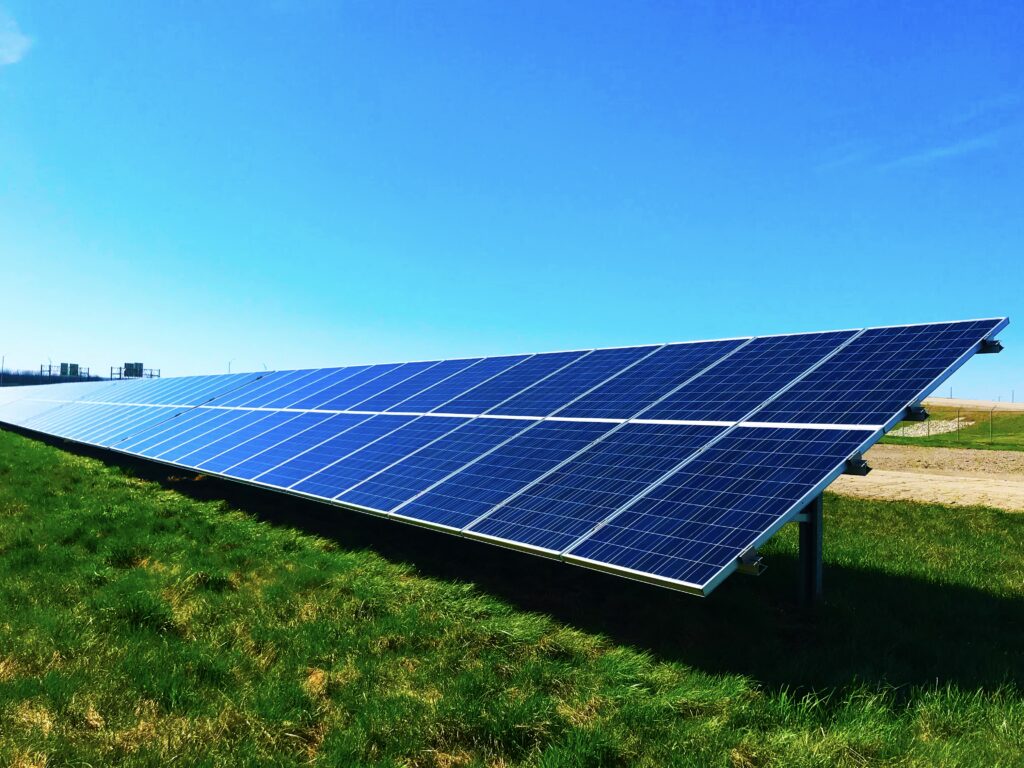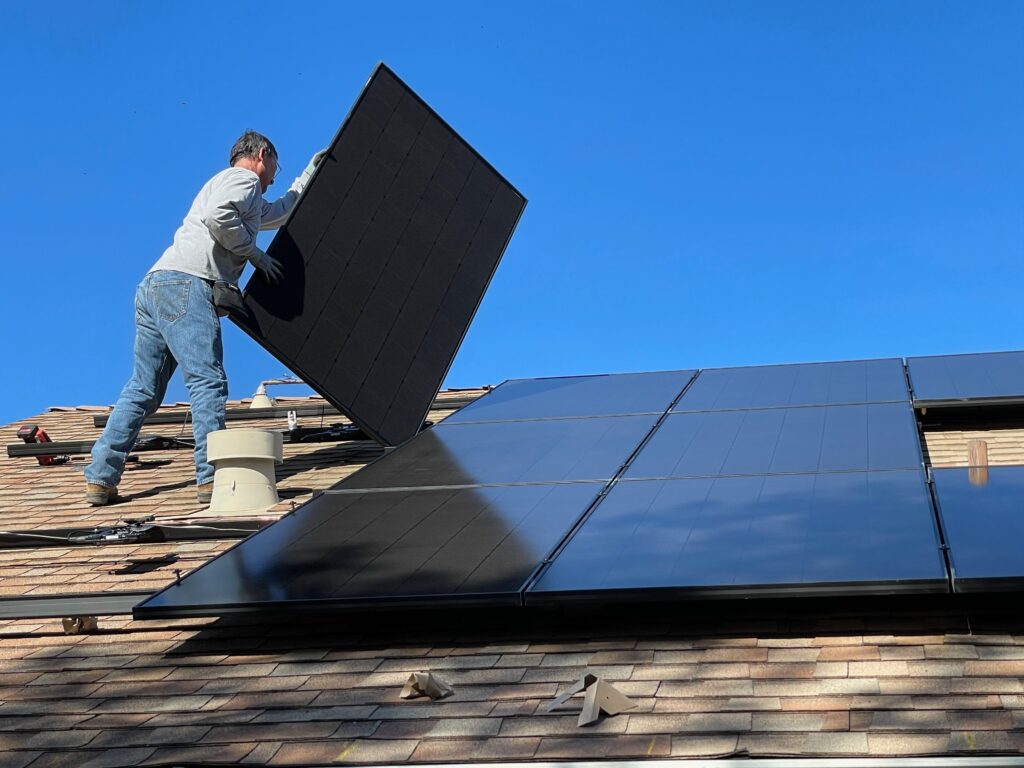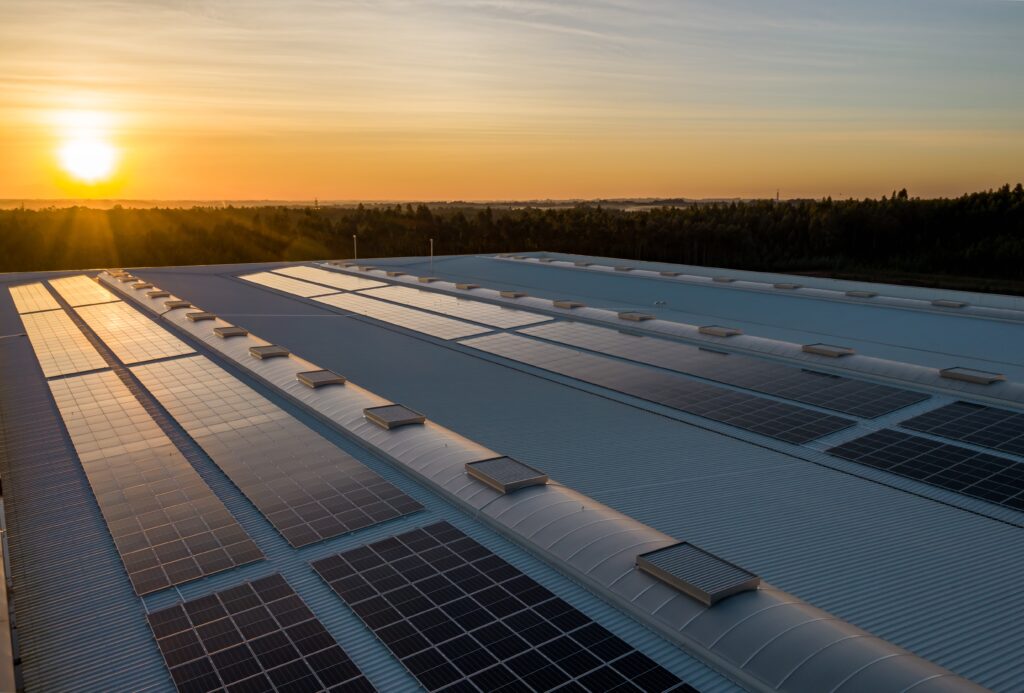Are you considering alternative energy options for your home or business? If so, you may find yourself pondering the question: which is better, a solar inverter or a generator? Both options have their advantages and drawbacks, making it essential to weigh these factors before making a decision. In this article, we will explore the pros and cons of each option, helping you determine which is the most suitable for your energy needs. So, whether you’re aiming for a sustainable future or simply looking for a reliable backup power source, keep reading to find out which option reigns supreme: the solar inverter or the generator.

Understanding the Basics
Defining Solar Inverter
A solar inverter is a device that converts the direct current (DC) generated by solar panels into alternating current (AC) that can be used to power household appliances. Essentially, it acts as the link between the solar panels and your electrical system. A solar inverter plays a crucial role in harnessing the energy from the sun and making it usable for your everyday needs.
Understanding Generators
On the other hand, a generator is a device that produces electricity by converting mechanical energy, typically from a fossil fuel engine, into electrical energy. It consists of an engine, a fuel source, and an alternator that generates the electricity. Generators are commonly used as a backup power source during emergencies or in situations where access to electricity is limited.
Common Types of Solar Inverters and Generators
Solar inverters come in various types, including string inverters, microinverters, and power optimizers. Each type has its own advantages and is suitable for different solar panel setups. Generators, on the other hand, can be categorized into portable generators, standby generators, and industrial generators, depending on their size and intended use.
The Working Mechanism of Solar Inverters and Generators
Solar inverters work by taking the DC power produced by solar panels and converting it into AC power that can be used by household appliances. This conversion is achieved through a process called inversion, where the inverter’s electronics change the frequency and voltage of the DC power to match the grid or appliance requirements.
Generators work by converting mechanical energy into electrical energy. The engine of the generator is powered by a fuel source, such as gasoline, diesel, or natural gas. As the engine spins, it drives the alternator, which generates the AC electricity. This electricity is then used to power various devices and appliances.
Uses of Solar Inverters and Generators
Solar inverters are primarily used in residential and commercial settings to harness the power of the sun and offset reliance on traditional electrical grids. They are ideal for reducing electricity bills, promoting renewable energy, and contributing to a greener environment. Generators, on the other hand, are commonly used as backup power sources during power outages, in remote areas with limited access to electricity, or for specific industrial applications.
Energy Efficiency
Efficiency of Solar Inverters
Solar inverters are highly efficient in converting solar energy into usable electricity. The efficiency of a solar inverter refers to the percentage of available solar energy that is successfully converted into usable electricity. Most modern solar inverters have an efficiency rating of around 95% to 98%, ensuring minimal energy loss during the conversion process.
Efficiency of Generators
The efficiency of generators varies depending on the type and size of the generator. Generally, smaller portable generators have lower efficiency compared to larger standby or industrial generators. On average, generators have efficiency ratings ranging from 70% to 95%. However, it’s important to note that generators often consume fuel to maintain their idle state, resulting in some energy wastage.
Factors Affecting the Efficiency
Several factors can affect the efficiency of both solar inverters and generators. For solar inverters, factors such as temperature, shade, and the quality of solar panels can impact their performance. In the case of generators, factors such as fuel type, engine efficiency, and load capacity play a significant role in determining their efficiency. It is crucial to consider these factors when choosing between a solar inverter and a generator to maximize energy efficiency.
Cost Analysis
Initial Setup Cost for Solar Inverters
The initial setup cost for solar inverters includes the cost of solar panels, the inverter itself, and any additional equipment required for the installation. The cost will vary based on the size of the solar system and the quality of the components used. On average, the initial setup cost for a residential solar inverter can range from a few thousand dollars to tens of thousands of dollars, depending on the scope of the project.
Initial Setup Cost for Generators
The initial setup cost for generators primarily depends on the size and type of the generator. Portable generators are generally more affordable, with prices ranging from a few hundred dollars to a couple of thousand dollars. Standby and industrial generators, which are larger and more powerful, can cost anywhere from several thousand dollars to tens of thousands of dollars.
Ongoing Maintenance Costs
Solar inverters have minimal ongoing maintenance costs. They are designed to be durable and reliable, requiring only periodic inspections and cleaning to ensure optimal performance. In contrast, generators require regular maintenance, including oil changes, filter replacements, and general upkeep. The ongoing maintenance costs for generators can add up over time, especially for larger and more powerful units.
Fuel Costs for Generators
One significant cost associated with generators is fuel. The type of fuel used, such as gasoline, diesel, or natural gas, will determine the fuel costs. Generators consume fuel continuously to produce electricity, resulting in ongoing expenses. The fuel costs can vary depending on the fuel prices and the generator’s fuel efficiency.
Comparison of Total Ownership Costs
When comparing the total ownership costs of solar inverters and generators, it is essential to consider both the initial setup cost and the ongoing expenses. While solar inverters may have a higher initial investment, they have minimal ongoing maintenance costs and no fuel expenses. Generators, on the other hand, have lower upfront costs but can accumulate higher maintenance and fuel costs over time. Evaluating the long-term costs can help determine the most cost-effective option for your specific needs.
Environmental Impact
Environmental Footprint of Solar Inverters
Solar inverters have a minimal environmental footprint compared to generators. By converting solar energy into electricity, solar inverters help reduce reliance on fossil fuels and decrease greenhouse gas emissions. Additionally, solar inverters do not produce any air or noise pollution, making them a cleaner and quieter alternative for generating electricity.
Environmental Footprint of Generators
Generators, particularly those powered by fossil fuels, have a more significant environmental impact. Burning fossil fuels releases carbon dioxide (CO2) and other harmful emissions into the atmosphere, contributing to air pollution and climate change. Additionally, generators can produce noise pollution, which can have adverse effects on both humans and wildlife in the surrounding areas.
Carbon Emissions Comparison
When it comes to carbon emissions, solar inverters are the clear winner. As they rely solely on solar energy, they produce zero greenhouse gas emissions during operation. In contrast, generators emit carbon dioxide and other pollutants as byproducts of burning fossil fuels. By choosing a solar inverter over a generator, you can greatly reduce your carbon footprint and contribute to a cleaner and healthier environment.
Waste Generation
In terms of waste generation, solar inverters typically have a longer lifespan and lower chances of needing to be replaced. While they may have some electronic components that need to be disposed of properly at the end of their lifecycle, the overall waste generated is relatively minimal. Generators, on the other hand, require regular fuel consumption and maintenance, which results in the production of waste such as empty fuel containers, used oil, and worn-out parts.

Reliability and Dependability
Dependability of Solar Inverters
Solar inverters are known for their reliability and dependability. They are designed to withstand various weather conditions, including rain, snow, and high temperatures. Additionally, solar inverters have a long lifespan and are not prone to sudden breakdowns or failures. With proper installation and maintenance, solar inverters can provide a stable and continuous source of electricity for years to come.
Dependability of Generators
Generators, while reliable when properly maintained, can be more susceptible to breakdowns and failures. Factors such as engine wear, fuel quality, and regular maintenance play a crucial role in ensuring the dependability of generators. Portable generators, in particular, may not be as durable as larger standby or industrial generators and may require more frequent repairs or replacement.
Factors Impacting Reliability
Several factors can impact the reliability of both solar inverters and generators. For solar inverters, factors such as the quality of installation, the lifespan of the solar panels, and the durability of the inverter itself can affect their overall reliability. Generators, on the other hand, are influenced by factors such as fuel quality, regular maintenance, and the load capacity they are subjected to. Considering these factors is essential to ensure a reliable and dependable power source.
Lifespan and Durability
Expected Lifespan of Solar Inverters
Solar inverters are built to last and typically have a lifespan of 10 to 15 years. However, with proper maintenance and care, some high-quality inverters can last even longer. The lifespan of a solar inverter can be affected by various factors, including the manufacturer’s design and construction, the quality of the electronic components, and environmental conditions.
Expected Lifespan of Generators
The expected lifespan of generators can vary depending on the type and size of the generator, as well as how well it is maintained. Portable generators typically have a shorter lifespan of around 1,000 to 2,000 hours of use, while standby and industrial generators can last significantly longer, up to 20,000 hours or more. Regular maintenance and servicing are crucial to prolonging the lifespan of generators.
Resilience Against Harsh Conditions
Solar inverters, when properly installed and protected, can withstand various weather conditions, including extreme temperatures, rain, and snow. However, they may require additional measures, such as proper grounding and surge protection, to ensure their durability in harsh environments. Generators, on the other hand, may be more resilient to extreme weather conditions, but they still require adequate shelter and protection from moisture and dust to maintain their performance and longevity.

Installation and Maintenance
Ease of Installation for Solar Inverters
The installation of solar inverters can be relatively straightforward, especially if done by a professional installer. It typically involves mounting the solar panels on the roof or in an open area, connecting them to the inverter, and integrating the inverter with the electrical system of the building. While the process may require some technical knowledge, experienced installers can ensure a smooth and hassle-free installation.
Ease of Installation for Generators
The installation of generators can be more complex compared to solar inverters. It often involves connecting the generator to the electrical system of the building and ensuring proper grounding and safety measures are in place. Additionally, depending on the type of generator, it may require fuel storage facilities or a connection to a fuel source. Due to the complexity of installation, it is recommended to hire a certified electrician or generator installer.
Maintenance Requirements for Solar Inverters
Solar inverters have minimal maintenance requirements. Regular inspections to ensure proper function, cleaning of the panels to remove dirt and debris, and checking for any signs of wear or damage are usually sufficient to keep the inverter in good working condition. In cases of malfunction, it is advisable to contact a professional to diagnose and repair the issue.
Maintenance Requirements for Generators
Generators require regular maintenance and servicing to ensure optimal performance and longevity. This includes oil changes, filter replacements, spark plug checks, and overall inspection of the generator’s components. Depending on the type and size of the generator, maintenance intervals may range from every few months to annually. Regular maintenance is crucial in identifying potential issues early on and preventing costly breakdowns.
Functionality and Usability
Functionality of Solar Inverters
Solar inverters are designed to seamlessly integrate with the electrical system of a building and provide a reliable source of electricity. They have built-in features such as anti-islanding protection, which ensures the inverter shuts down in the event of a power outage to protect utility workers. Some inverters also offer advanced monitoring capabilities, allowing users to track their energy production and consumption.
Functionality of Generators
Generators are versatile power sources that provide electricity independently of the electrical grid. They can power a wide range of devices and appliances, from small electronics to essential household appliances. Generators often come with multiple outlets and may have additional features such as electric starts, automatic voltage regulation, or fuel gauges, making them user-friendly and convenient to operate.
Ease of Use and Handling
Solar inverters require minimal user intervention once they are installed and connected to the electrical system. Users can monitor their energy production and consumption through user-friendly interfaces or mobile apps, allowing for easy tracking and analysis. Generators, on the other hand, require manual starting and monitoring. While they may require some basic knowledge of operations and safety precautions, modern generators are designed to be user-friendly and easy to handle.
Safety Considerations
Safety Aspects of Solar Inverters
Solar inverters are safe to use when installed and maintained properly. They have built-in safety features that protect against electrical hazards, such as overcurrent protection and ground fault detection. However, it is crucial to follow all safety guidelines provided by the manufacturer and ensure proper grounding and installation to minimize any risks associated with electrical systems.
Safety Aspects of Generators
Generators, while generally safe to use, can pose certain risks if not handled properly. They should be operated in well-ventilated areas to prevent carbon monoxide poisoning. Additionally, proper grounding and electrical connections are essential to prevent electrical shocks or fires. Users should also follow fuel storage and handling guidelines to minimize the risk of fuel-related accidents.
Potential Hazards and Prevention
Both solar inverters and generators have potential hazards that need to be addressed. Solar inverters, though low-risk, may have high-voltage DC components that require caution during installation and maintenance. Generators pose risks such as carbon monoxide emissions, electrical shocks, and fuel-related accidents. To prevent these hazards, it is crucial to follow safety guidelines, seek professional assistance when needed, and take necessary precautions to ensure safe operation.
Choosing the Right Option
Who Should Consider Solar Inverters?
Solar inverters are an excellent choice for individuals or businesses looking to reduce their reliance on traditional energy sources, lower their electricity bills, and contribute to a greener environment. They are particularly beneficial for those living in areas with ample sunlight and favorable solar conditions. Additionally, individuals interested in long-term energy savings and sustainability should consider installing solar inverters.
Who Should Consider Generators?
Generators are suitable for individuals or businesses that frequently experience power outages, live or work in remote areas without access to reliable electricity, or require a backup power source for critical operations. They are especially useful in emergency situations or industries that rely heavily on continuous power supply, such as healthcare facilities or data centers. Generators provide a reliable and independent source of electricity when grid power is unavailable.
Conclusion and Recommendations Based on Specific Scenarios
In conclusion, the choice between a solar inverter and a generator ultimately depends on your specific needs, circumstances, and priorities. Solar inverters offer a sustainable and environmentally friendly solution, with long-term energy savings and minimal maintenance. They are ideal for those looking to reduce their carbon footprint and benefit from clean, renewable energy.
On the other hand, generators provide a reliable backup power source, especially in areas prone to power outages or remote locations without access to electricity. They offer immediate and independent power supply, ensuring essential operations can continue even during emergencies.
To make an informed decision, it is recommended to evaluate factors such as energy efficiency, initial and ongoing costs, environmental impact, reliability, lifespan, installation and maintenance requirements, functionality, usability, and safety considerations. Consulting with professionals and considering your specific energy needs and budget will help you choose the right option that suits your requirements and priorities.
Remember, both solar inverters and generators have their own benefits and considerations. It’s essential to assess your unique situation and determine which option aligns with your values and fulfills your power needs effectively and efficiently.




